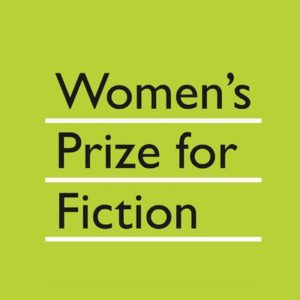Women’s Prize for Fiction 2018
 The Women’s Prize for Fiction 2018 was founded in 1996, the Prize was set up for “excellence, originality and accessibility in writing by women in English from throughout the world”. As always the prize celebrates and helps readers discover fantastic women writers. This year’s shortlist is formidable — a trademark of the Women’s Prize for Fiction even in its previous avatars as Orange Prize and Bailey’s Prize.
The Women’s Prize for Fiction 2018 was founded in 1996, the Prize was set up for “excellence, originality and accessibility in writing by women in English from throughout the world”. As always the prize celebrates and helps readers discover fantastic women writers. This year’s shortlist is formidable — a trademark of the Women’s Prize for Fiction even in its previous avatars as Orange Prize and Bailey’s Prize.
- Kamila Shamsie Home Fire ( Bloomsbury)
- Meena Kandaswamy When I Hit You or a Portrait of the Writer as a Young Wife ( Juggernaut Books)
- Jesmyn Ward Sing, Unburied, Sing ( Bloomsbury)
- Jessie Greengrass Sight ( John Murray)
- Imogen Hermes Gower The Mermaid and Mrs Hancock ( Harvill Secker, Penguin Random House)
- Elif Batuman The Idiot ( Jonathan Cape, Penguin Random House)
In a wonderful ceremony held in London, Kamila Shamsie won the Women’s Prize for Fiction 2018.
Watch the moment that @kamilashamsie won the 2018 #WomensPrize for Fiction! ? pic.twitter.com/7WB9zifD6O
— Women's Prize (@WomensPrize) June 6, 2018
There was an enormous roar when Kamila Shamsie’s name was announced as the winner. This is what Kate Moss, founder of the prize, had to say:
‘There was an enormous roar that went up when Kamila was announced as the winner’
Our brilliant Founder Director @katemosse interviewed at our awards party. pic.twitter.com/ixNX4R3Lnl— Women's Prize (@WomensPrize) June 6, 2018
Kamila Shamsie’s Home Fire explores the complicated relationship Isma has with her younger twin siblings, Aneeka and Parvaiz. It is also a modern retelling of Antigone in which Isma, whose mother has died, works hard to raise her brother and sister. When they reach adulthood, Isma leaves for the US to study at university while her brother, Parvaiz, who has unfortunately become radicalised in Britain, leaves to join ISIS, following in the footsteps of their jihadist father. Aneeka, meanwhile, is torn between her love for her older sister and her twin. The idea of two sisters where one is conventional, bordering on timid but keeps the home fire burning while the other leaves home and enters the world of men with far reaching consequences has been encapsulated in myths and legends. There is Antigone and her sister Ismene from the Greek myth, and Mary and Martha in the New Testament. The Sophoclean chorus giving a background and a perspective on the “tricky” position British Muslims occupy is provided by the character of a Muslim MP and Home Secretary, Karamat Lone, and his son, Eamonn. It’s a prescient novel for it is considered to have predicted the rise of British Pakistani Sajid Javid, current Home Secretary of Britain. In fact she wrote about it in the Guardian too.
Poet-cum-novelist Meena Kandawamy’s When I Hit Youabout her four months as a married woman. At one level it is an account of the horrific marriage she found herself in. She walked into it knowingly having met her husband online while involved in an activism campaign. Her parents and this man shared similar ideological positions which probably coloured her decision to marry. At another level it is as if Meena Kandaswamy puts herself under the scanner and analyses her life using all the feminist theory she has read and practised over the years. Putting the book at this curious intersection is incisive while making the acute conflict of the desi social expectations of a young girl to “settle down” and that of a professional writer/poet. In fact before her marriage Meena Kandaswamy was used to travelling whereever and whenever she desired. She terms herself as a “nomad” in the book. After marriage there was a gargantuan difference. She was suddenly confined to the small house in Mangalore. After walking out of her marriage Meena Kandawamy wrote an article in the first person for Outlook magazine. ( “I Singe the Body Electric”, 19 March 2012). It was the first time she spoke of the domestic violence. Interestingly she chose the first person mode to write of the traumatic experience.
Elif Batuman’s The Idiot is an astonishing bildungsroman for its incredible craftsmanship in telling the story of Turkish American student Selin who is enrolled at Harvard University for literature and linguistics. Set in the 1990s it seems like a different world altogether. From a bewildered young woman, exposed to the academic world where everyone seems to flaunt their “knowledge” who grows in to a sophisticated version of her younger self, of a young woman comfortable in her skin with who she is, her choices, her knowledge and the relationships she forges. It is not an easy book to read. It takes a little while to get into but once past the first hundred pages it is impossible to put down. Elif Batuman’s love affair with Russian literature continues in this novel too beginning with the title which echoes Dostoevsky’s The Idiot.
Jesmyn Ward’s Sing, Unburied, Sing is an extremely powerful story about a family of mixed race. The father, Michael, is in prison, but his wife, Leonie, lives with her two children and her parents. Michael is ostracized by his family for marrying a “nigger”. Leonie is a chemical addict who does not have much time for her children or parents yet she is insistent on making the long road trip to fetch Michael once he is released from prison. The narrative alternates between the thirteen-year-old son and Leonie. At times their stories overlap offering different perspectives about their family, their own histories and racism. The sensitive portrayal of the older brother with his baby sister is memorable. Jesmyn Ward is the Toni Morrison for a younger generation. She won the National Book Award 2017 for this novel.
Jessie Greengrass’s debut novel Sight is about an unnamed narrator wondering whether to have a child or not. Every meditative reflection is interspersed with a long interlude about a scientific discovery of the Victorian period. The first section involves the Lumière brothers, Auguste and Louis, and Wilhelm Conrad Röntgen’s discovery of X-rays; the second section is about psycho analyst Sigmud Freud and the final section is about Scottish surgeon John Hunter who was exceptionally well known for his knowledge of the anatomy, both human and animal. In fact John Hunter’s fine collection of over 14,000 specimens was acquired by the British government and even today exists at the Hunterian Museum at the Royal College of Surgeons in London. Sight is a literary example of psycho-geography — a combination of personal reminiscences and factual historical content. It is also an attempt to get at a further truth which is about how we see one another and we see ourselves especially the female experience which is most often taken away from human experience. It is a constantly evolving process of the individual’s subjectivity vs objectivity. It was first discussed in a similar meditative fashion by the Romantic poet Samuel Taylor Coleridge in Biographia Literaria. It is unsurprising given that Coleridge too like Jessie Greengrass was inspired by John Hunter’s work and its focus on the distinctions between life and matter. As Jessie Greengrass remarks in an interview “having a subjective self is something which allows us privacy but also separates us even from the people we are closest to” and this is the angle she explores as a novelist in her powerful debut Sight.
The Mermaid and Mrs Hancock by debut novelist Imogen Hermes Gower is a rich historical fiction set in the Georgian period involving courtesans and mermaids. It is a lovely story, detailed about late 18C England and yet the strong women characters seem as if the 21C attitudes towards women have been supplanted back in time.
The novels shortlisted for the Women’s Prize for Fiction 2018* are riveting. Every single one of them is special for the tenor of writing, storytelling, and great diversity in style — memoir-like novels, retelling of myths, magic realism, and bildungsroman. These are books meant to be read as they are changing contemporary literary landscape and the authors will be considered literary giants in years to come.
*My article on Women’s Prize for Fiction 2017
7 June 2018


